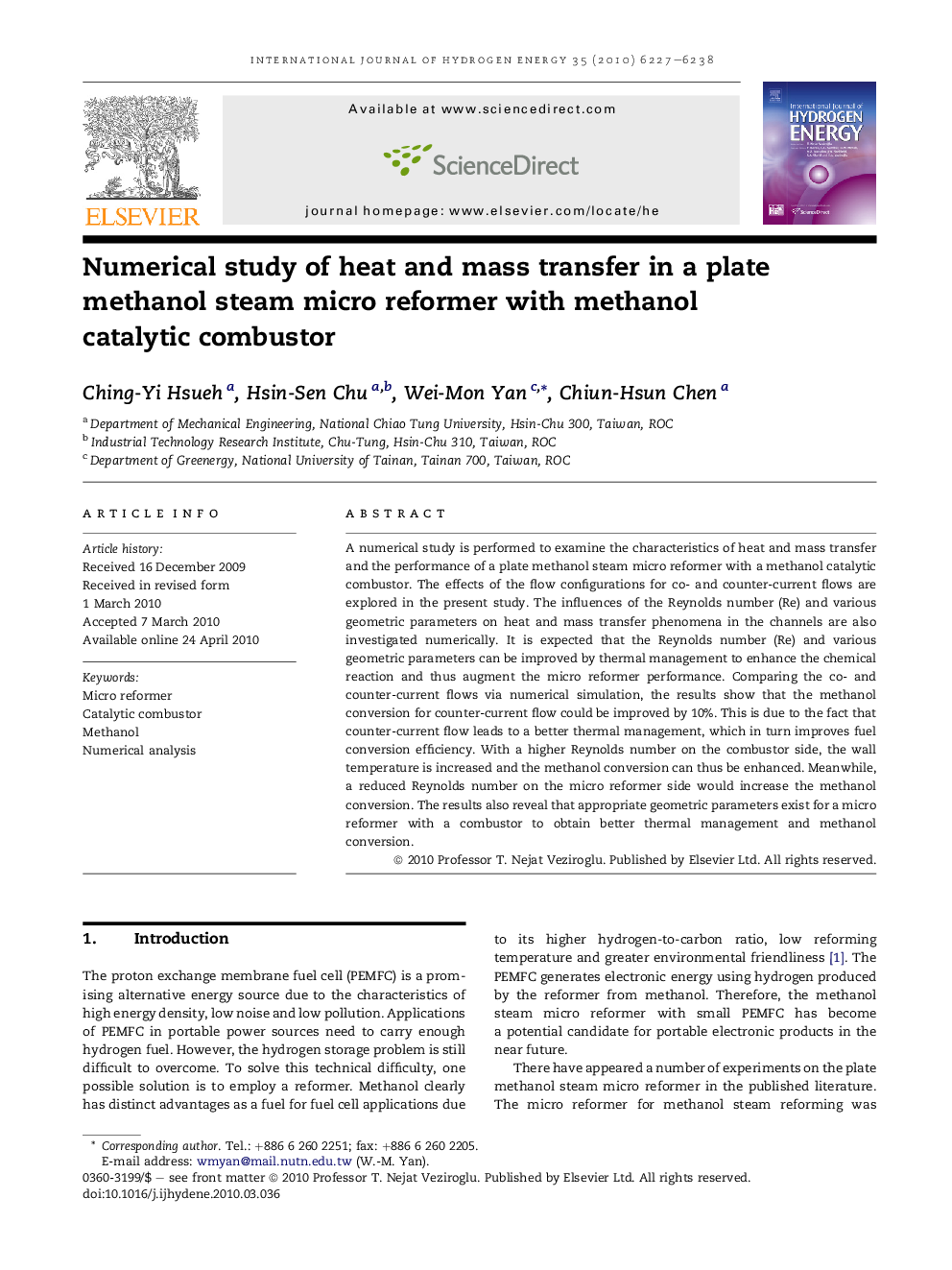| Article ID | Journal | Published Year | Pages | File Type |
|---|---|---|---|---|
| 1277085 | International Journal of Hydrogen Energy | 2010 | 12 Pages |
A numerical study is performed to examine the characteristics of heat and mass transfer and the performance of a plate methanol steam micro reformer with a methanol catalytic combustor. The effects of the flow configurations for co- and counter-current flows are explored in the present study. The influences of the Reynolds number (Re) and various geometric parameters on heat and mass transfer phenomena in the channels are also investigated numerically. It is expected that the Reynolds number (Re) and various geometric parameters can be improved by thermal management to enhance the chemical reaction and thus augment the micro reformer performance. Comparing the co- and counter-current flows via numerical simulation, the results show that the methanol conversion for counter-current flow could be improved by 10%. This is due to the fact that counter-current flow leads to a better thermal management, which in turn improves fuel conversion efficiency. With a higher Reynolds number on the combustor side, the wall temperature is increased and the methanol conversion can thus be enhanced. Meanwhile, a reduced Reynolds number on the micro reformer side would increase the methanol conversion. The results also reveal that appropriate geometric parameters exist for a micro reformer with a combustor to obtain better thermal management and methanol conversion.
